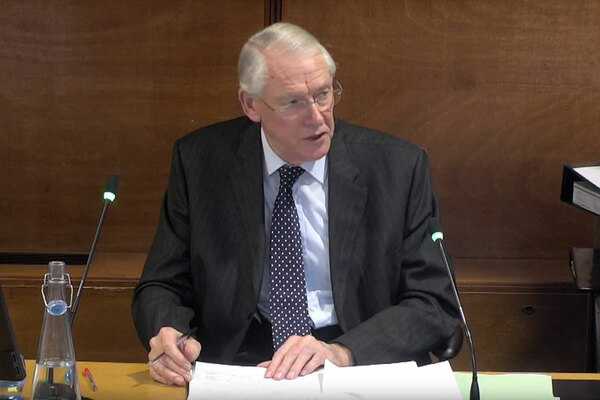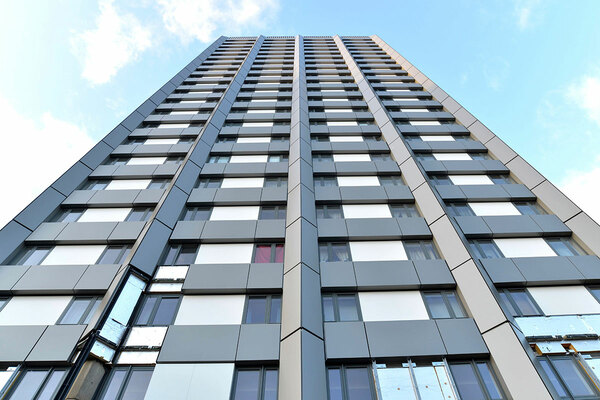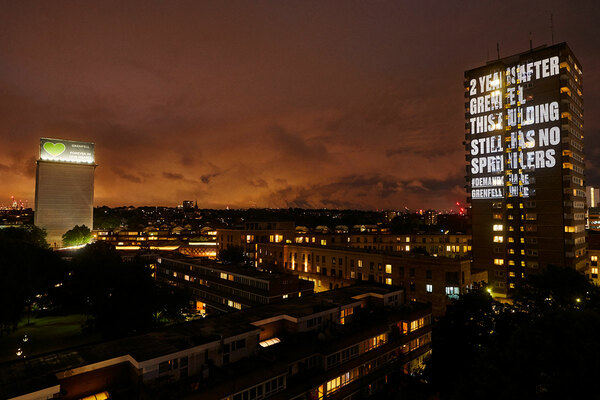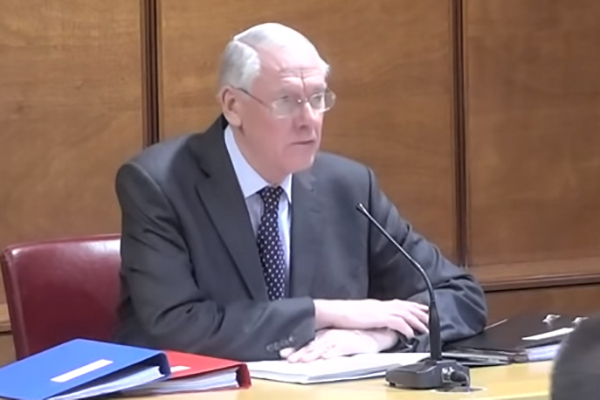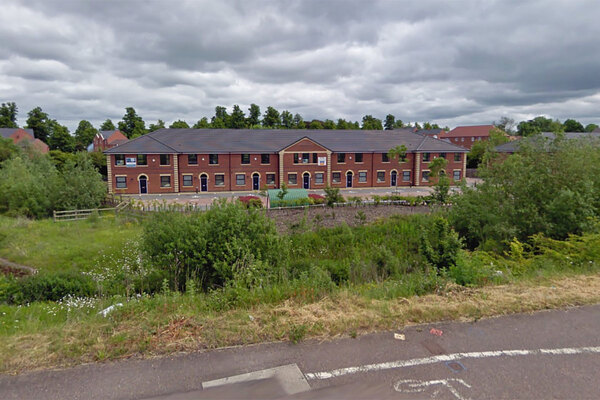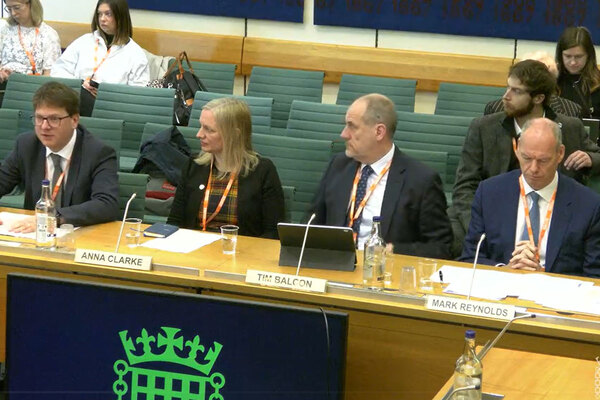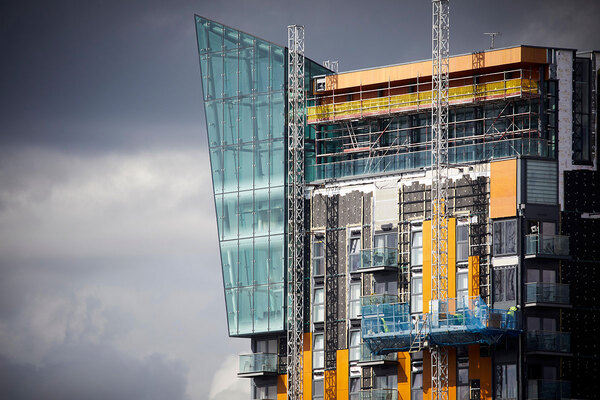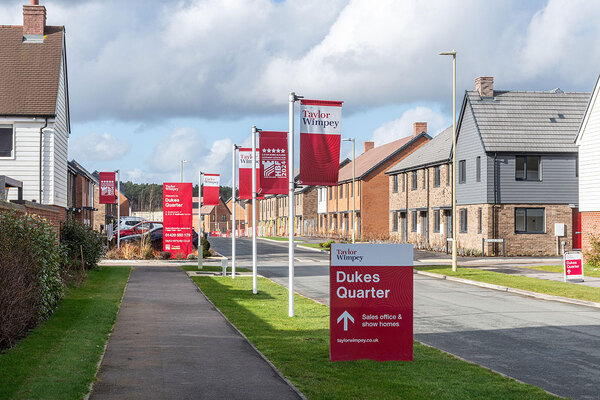Corporations accused of ‘merry-go-round of buck passing’ as Grenfell Inquiry reopens
The corporations involved in the doomed refurbishment of Grenfell Tower have been accused of a “merry-go-round of buck passing”, as the second phase of the public inquiry opened today.
In front of a room packed with survivors and bereaved family members from the blaze, which killed 72 people in June 2017, Richard Millett, representing the inquiry, said that only the Royal Borough of Kensington and Chelsea had been willing to accept fault.
He said that the council – whose building control officers signed off the work as compliant – had accepted “serious faults and departures from statutory requirements” in signing off the work.
However, he said that the other corporate participants and management company Kensington and Chelsea Tenant Management Organisation (KCTMO) were engaging in an effort to shift the blame.
“One finds within these detailed and carefully crafted statements no trace of any acceptance whatsoever of responsibility for what happened at Grenfell Tower,” he said.
“Any member of the public would be forced to conclude that everybody involved in the refurbishment of Grenfell Tower did what they were supposed to do and nobody made any serious or causative mistakes.”
He said that at the start of phase one he had invited them not to indulge in a “merry-go-round of buck passing”, but that they had not yet taken this invitation.
He called on witnesses from these companies to provide full and frank answers when they are called. He said that the survivors and bereaved “are owed at the very least an honest and complete account from those witnesses who are in a position to explain why it happened”.
Mr Millett laid out the modular structure for the inquiry and its timetable, which is due to run until at least May next year. He also provided a breakdown of the involvement of the various corporations in the refurbishment.
Regarding the failures of RBKC’s building control unit, he said a report by inquiry expert Beryl Menzies involved “serious failings and departures from statutory requirements and guidance across a very wide spectrum of professional disciplines”.
In particular, building control officers – who are responsible for ensuring building work is carried out in accordance with regulations – were said to have failed to have asked for comprehensive details of the materials used, failed to identify that the insulation was combustible and failed to request an up-to-date fire strategy.
Mr Millett was followed by the lawyer for Studio E, which worked with KCTMO and Rydon as the architects for the project.
The firm defended its involvement, blaming a regulatory system that was “not fit for purpose” and that “permitted the routine use of unsafe cladding for many years”.
He also said that Rydon, the main contractor, had “held itself out as having a specialty in refurbishing affordable housing, including high-rise residential towers”. And he said that Rydon had retained a “greater degree of control” than an architect would normally assume in a design and build contract.
Rydon set out its position by emphasising its delegation of responsibilities to sub-contractors, particularly Studio E and Harley Facades – the sub-contractor responsible for the cladding. It said the matter of what exactly was delegated and when should be “considered carefully by the inquiry”.
It said Studio E was operating under the Royal Institute of British Architects’ standard terms, which require all materials specified to comply with the building regulations.
It went on to make serious allegations about the way cladding manufacturer Arconic and insulation company Celotex had marketed and tested their products.
A lawyer representing the sub-contractor Harley Facades emphasised that the firm was “not responsible” for the selection of the materials in the façade, which it claimed were specified by Studio and the client, KCTMO.
The firm also said assuring fire safety was not the job of the cladding specialists with building control or the fire engineers Exova actually responsible.
He stressed that the cladding materials were popular choices across the industry, adding to criticism of the marketing by Celotex and Arconic.
Ahead of the opening of the hearing, Michael Mansfield QC made an appeal to Sir Martin to “make representations” to government regarding the process of appointing another panel member.
He said there had been a “stunning silence” from the Cabinet Office and the prime minister about progress finding a replacement for Benita Mehra, who quit after a link emerged between her and Arconic.
Survivors are particularly keen for this new panellist to be appointed before module three – when these matters are due to be examined in detail – and Mr Mansfield said there would be a “short delay to some of the evidence” in order for a panel member to be appointed.
The inquiry will continue tomorrow with opening statements from Arconic, Celotex, fire engineers Exova and others.
Grenfell Tower Inquiry: phase two timeline
Sir Martin Moore-Bick, the retired judge who chairs the inquiry (picture: Grenfell Tower Inquiry)
The inquiry will be spread across eight modules, with the below timeline set out at the start of the inquiry:
Module one: 27 January to April 2020
Module one will examine the role, acts and omissions of the professionals involved in the refurbishment of the tower from 2012 to its sign-off on 20 July 2016.
Module two: 4 May to mid-June 2020
This section will examine the testing, classification, certification and marketing of key products used in the external wall, particularly the Reynobond PE 55 cladding panels and the polyisocyanurate insulation made by Celotex.
Module three: June to early October 2020
This will involve three topics: first, the complaints made by residents, particularly those relating to fire safety and the quality of the workmanship; second, the compliance with the requirements of the Regulatory Reform Order 2005 by the council, Kensington and Chelsea Tenant Management Organisation and the London Fire Brigade; and finally, active and passive safety measures in the tower. Closing statements for all the first three modules will then follow.
Module four: mid-October to mid-November 2020
This module will assess the performance of local and national government in the immediate aftermath of the fire.
Module five: mid-November 2020 to mid-February 2021
The firefighting operation will be reviewed in more detail in this section, including an analysis of training and the suitability of equipment.
Module six: February 2021 to May 2021
This module will turn the lens on central government, with a focus on the responses to previous incidents and
reports, coroners’ recommendations and things of that nature – including in respect of the building regulations and associated guidance, as well as fires and firefighting.
Module seven: May 2021
One week has been set aside for an assessment of the remaining expert evidence.
Module eight: timetable to be announced
This will assess any remaining evidence, including an attempt to establish how each of the deceased met their deaths. The bereaved and survivors have been invited to make submissions about other matters, which should be considered in this module.
